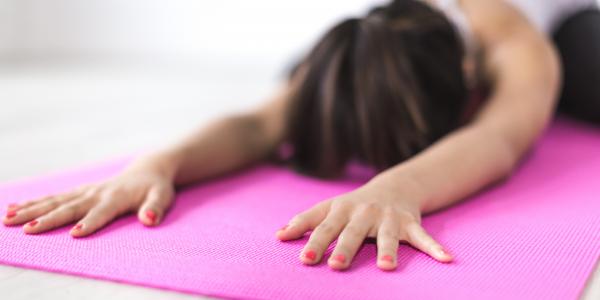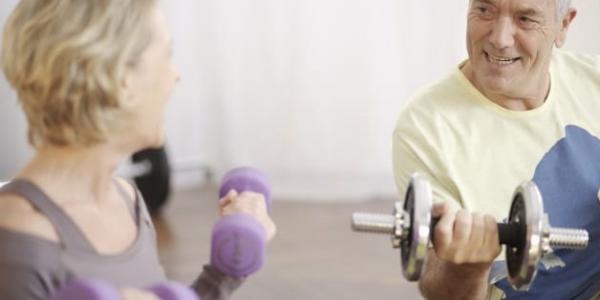Want a better night’s sleep? Get Moving!

The connection between exercise and sleep is very real. This article examines current research, and how your everyday activities may be influencing sleep patterns.
How did you sleep last night? And the night before? And the days, weeks, and months prior to that? Take a moment and reflect on the number of hours you typically sleep, how well you sleep during the night, and how you feel most mornings. For millions of people, the outlook is a drowsy one. According to a 2016 Centers for Disease Control and Prevention (CDC) study, more than a third of Americans don’t meet the recommended threshold for healthy sleep duration- seven or more hours per day. Between our busy schedules, racing minds, family obligations, and overall sense of being stretched-too-thin, it’s no wonder so many folks struggle to snooze. Dr. Wayne Giles of the CDC says simply, “As a nation we are not getting enough sleep.”
You know how you feel when you’re tired, and it’s usually not good. Fatigue can impact your alertness, mood, and productivity. Beyond the way we feel in our day-to-day lives, poor sleep has been associated with the increased risk for developing some serious chronic health conditions- including heart disease, high blood pressure, stroke, and diabetes. Unsurprisingly, lack of sleep can contribute to declining mental health. In short, insufficient sleep may contribute to negative health outcomes.
But what can be done about this prevalent issue? Stress seems to be baked-in to our culture and it doesn’t feel like that will change anytime soon. The good news is, while you may not be able to control the whirring world around you, there are some lifestyle interventions that can help get your sleep cycles back on track. For example, going to bed and waking up at a consistent time can help regulate your internal clock. Avoiding screens before bed- like your phone or the TV- is a good way to ease the burden on your eyes and brain. And my favorite favorite sleep hack is one that will not only enhance your slumber, but will help improve overall health and well-being: physical activity.
It seems intuitive that being active can lead to better sleep. Think about a time that you had a big day of hiking, gardening, or helping a friend move. Did you sleep like a rock that night? Many studies have supported the anecdotal notion that exercise can improve sleep. Research suggests that active people can expect to have more sound, restful sleep- as exercise is linked to an increase in the duration of deep sleep. Deep sleep is the restorative sleep phase that our bodies and minds need the most. It is vital in supporting a healthy immune system, good cardiac health, and lowered stress. Alongside better sleep quality, folks who exercise tend to sleep longer than their non-active peers, especially those who include consistent exercise as a part of their daily routine. Longer, better quality sleep may be the result of an active lifestyle.
A 2013 inquiry by the National Sleep Foundation sought to learn more about the exercise/sleep connection. A few significant findings demonstrate the association between sleep and quality of life:
• Regular exercise may help lead to better sleep. In a self-reported survey, individuals that say they got regular exercise reported better sleep than those who were not active. Over 75% of the ‘exercising’ cohort said that in the last two weeks, their sleep was either ‘good or fairly good’. Compare this to the non-exercise group, in which just over 50% reported ‘good or fairly good’ sleep.
• For best results, move vigorously. People who participated in activities considered ‘vigorous intensity’ were the least likely group to have sleep issues. Compared to non-exercisers, they were also twice as likely to report getting a ‘good night’s sleep’ every night or almost every night. What exactly is vigorous exercise? Learn more here.
• The non-exercising group was at the highest risk for sleep apnea. 44% of people in the non-exercise cohort showed a moderate risk for developing sleep apnea. Compare this with a rate of 26% of ‘light exercisers’ and 19% in the ‘vigorous exercise’ group.
• Stand up for sleep. Individuals that reported sitting fewer than eight hours each day were much more likely to have ‘very good’ sleep quality. Because this can be challenging if you work in an office setting, consider trying a standing desk, holding walking meetings, and embracing opportunities for incidental activity.
Conventional wisdom says that you should avoid exercise close to bedtime for best sleep quality, and we’ve largely come to believe that. However, current research suggests that this might not be the case and shouldn’t necessarily be treated as dogma. Generally speaking, exercise has been linked to better sleep regardless of time it was performed. While some folks may be too wired to sleep after an evening workout, others will wind down just fine. The takeaway is that some activity is better than none, and being consistent with your routine is the best way to optimize the exercise-sleep connection. Experts recommend finding an activity window that works for your individual needs and sticking with it for a few months to see what happens. You can always reevaluate and adjust down the road.
While exercise and sleep are correlated, the amount of exercise needed to improve sleep quality is somewhat unclear. Any activity is better than none, but following the National Institutes of Health (NIH) recommendation for weekly exercise is a good place to start. For general health, the NIH recommends at least 150 minutes of weekly moderate-intensity activity. This equates to 30 minutes per day, five days a week- or about 22 minutes per day, seven days a week. Again, keeping a consistent routine seems to provide the most significant benefit. Whatever time you choose to wake up, exercise, and go to bed- try for a reliable schedule. And if you can’t carve out half an hour for activity, move when you can throughout the day. Something simple like a 10-minute walk during lunch can make a difference!
It's important to acknowledge that like many things in life, there is a risk in ‘too much of a good thing’. For example, someone trying to break the time barrier to quality for the Boston Marathon may be especially driven to train hard and meet their goal. Sometimes it takes runners a few tries to make the Boston standard, so it’s reasonable to think that an individual trying for the third or fourth time could overdo it in their quest to qualify. Insomnia is one of the first signs of overtraining. Chronic fatigue from overtraining is linked to diminished athletic performance. Hard-charging exercisers may feel the urge to work out even more to compensate for that dip in performance- continuing the cycle until exhaustion or injury intervenes. Balance is important, and that will look different for everyone. Find activities that you enjoy and remember not to go overboard. If you’re working out a lot and not sleeping well, it may be a sign that something is off.
In one research study, scientists uncovered an interesting short-term bi-directional phenomenon with exercise and sleep. In the 2013 study from Northwestern University, 11 previously sedentary women with insomnia began a 30-minute aerobic exercise program 3x per week. For the first two months of the trial, the women- mostly in their 60’s- reported sleeping no better after exercise than when they were inactive. In other words, a single workout didn’t necessarily improve that night’s sleep. However, if they experienced poor sleep the previous night, the duration of their workout would be curtailed the next day. After four months, the participants did see improvements in sleep quality- but that came with time and consistency. There are a few factors at play when considering this study- a small sample, possible confounding health issues, and the fact that the trial group already suffered from insomnia. But the two main findings are important- consistency is key, and a bad night’s sleep can have an immediate shortening effect on your workout the next day. For best athletic performance, try to get a good night’s sleep the night before.
If you’re hitting the snooze button every morning and longing to go back to dreamland- you’re not alone. As previously stated, over a third of people in the US are not get the recommended seven hours of nightly sleep. Look at your neighbors to the left and right. There’s a good chance that one (perhaps more) of you are sleep deprived at this very moment. While exercise alone isn’t the panacea for good sleep, studies suggest that sleep quality and duration are indeed positively impacted by regular exercise. Aside from better sleep, an active lifestyle will also benefit you in other areas. You know yourself better than anyone, so I’d encourage readers to trust their instincts. Find activities you enjoy and try to get moving when possible. Play with your kids, go for a dog walk, or join a pickleball league. You may consider combining movement with other lifestyle changes- like turning off your screens and reading late in the evening, or listen to a meditation podcast as you’re trying to drift off. Whatever helps you catch some zzz’s, keep in mind that the the old expression rings true: you make your own bed
Related Articles
.jpg)
Physical Literacy: The Foundation for a Life of Movement
Early development of physical literacy is linked to future success in sport and activity participation. In the long run, establishing active habits in children sets them on the path to happier and healthier lives.

Bend, Not Break: The Importance of Maintaining Flexibility
You may not think about it often, but flexibility impacts our everyday lives. Learn more about the physiology of flexibility and why you should consider making stretching part our your routine.

A Brief Guide to the Body's Aerobic System
Aerobic exercise is a cornerstone of physical wellness. Learn more about the function of the aerobic system and the role it plays in supporting good health.

Strength Training: Lift Your Way to Better Health
If your workout doesn’t include strength training, you’re missing out. Strength training can ward off age-related muscle loss, keep your bones strong, promote mobility and function, and even help combat depression and cognitive decline.





